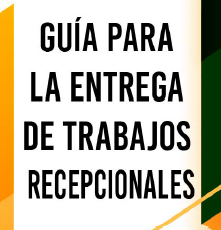Mostrar el registro sencillo del ítem
The use of interpreting techniques: memoirs of a novice interpreter.
| dc.contributor.author | Caro Sosa, Harif Santiago | |
| dc.date.accessioned | 2022-01-10T20:01:37Z | |
| dc.date.available | 2022-01-10T20:01:37Z | |
| dc.date.issued | 2020 | |
| dc.identifier.uri | http://hdl.handle.net/20.500.12249/2720 | |
| dc.description.abstract | As history has shown the benefits of interpreting, we must keep in mind that interpretation is a human process that is bound to the abilities and ethics of an individual. A mistake or an error in judgment conscious or unconscious from an interpreter can lead to serious repercussions. In a courtroom the role of the interpreter might not be seen of great importance by attorneys or judges but it can change the outcome of a trial. People involved might not pay attention to the pragmatics of the language and so the interpreter can change the tone of the witness’ testimony, or make the attorney questions more harsh or antagonic tan they are, or make it sound softer and more cooperative. This changes affect the perspective of those involved and the interpreter could take advantage of the linguistic mechanism to suit personal purposes. Interpreting has been used until today to connect nations around the world for the development of the societies. When the representatives of different cultures and communities reach an agreement for establishing and nurturing political relations, they rely on mediators in what is called diplomatic interpreting (Pochhacker, 2004). By establishing those relations, people are able to be exposed to new and more advanced technologies developed in other countries. Mexico is not an exception in this kind of relationships and connections with other countries and cultures. The relation between Mexico and The United States of America goes deeper that just sharing borders and Mexico’s relation with the rest of the world is also important since these kinds of political relations nurture the importing and exporting of products and the exchange of international services needed for the growth of businesses and economies. When establishing these relations, English acts as the Lingua Franca, enabling communication among countries. | |
| dc.description.provenance | Submitted by Yeni Martin Cahum (yenimartin@uqroo.edu.mx) on 2022-01-10T20:01:37Z No. of bitstreams: 0 | |
| dc.description.provenance | Made available in DSpace on 2022-01-10T20:01:37Z (GMT). No. of bitstreams: 0 Previous issue date: 2020 | |
| dc.format | ||
| dc.language.iso | eng | |
| dc.publisher | Universidad de Quintana Roo | |
| dc.rights.uri | http://creativecommons.org/licenses/by-nc-nd/4.0 | |
| dc.subject | Traducción e interpretación; Inglés -- Estudio y enseñanza | |
| dc.subject.classification | HUMANIDADES Y CIENCIAS DE LA CONDUCTA::LINGÜÍSTICA | |
| dc.subject.lcc | P306 | |
| dc.title | The use of interpreting techniques: memoirs of a novice interpreter. | |
| dc.type | Trabajo de grado, licenciatura | |
| dc.type.conacyt | bachelorDegreeWork | |
| dc.rights.acces | openAccess | |
| dc.identificator | 4||57 | |
| dc.audience | generalPublic | |
| dc.division | Biblioteca Unidad Académica Chetumal, Santiago Pacheco Cruz |
Ficheros en el ítem
Este ítem aparece en la(s) siguiente(s) colección(ones)
-
Licenciatura [2489]






